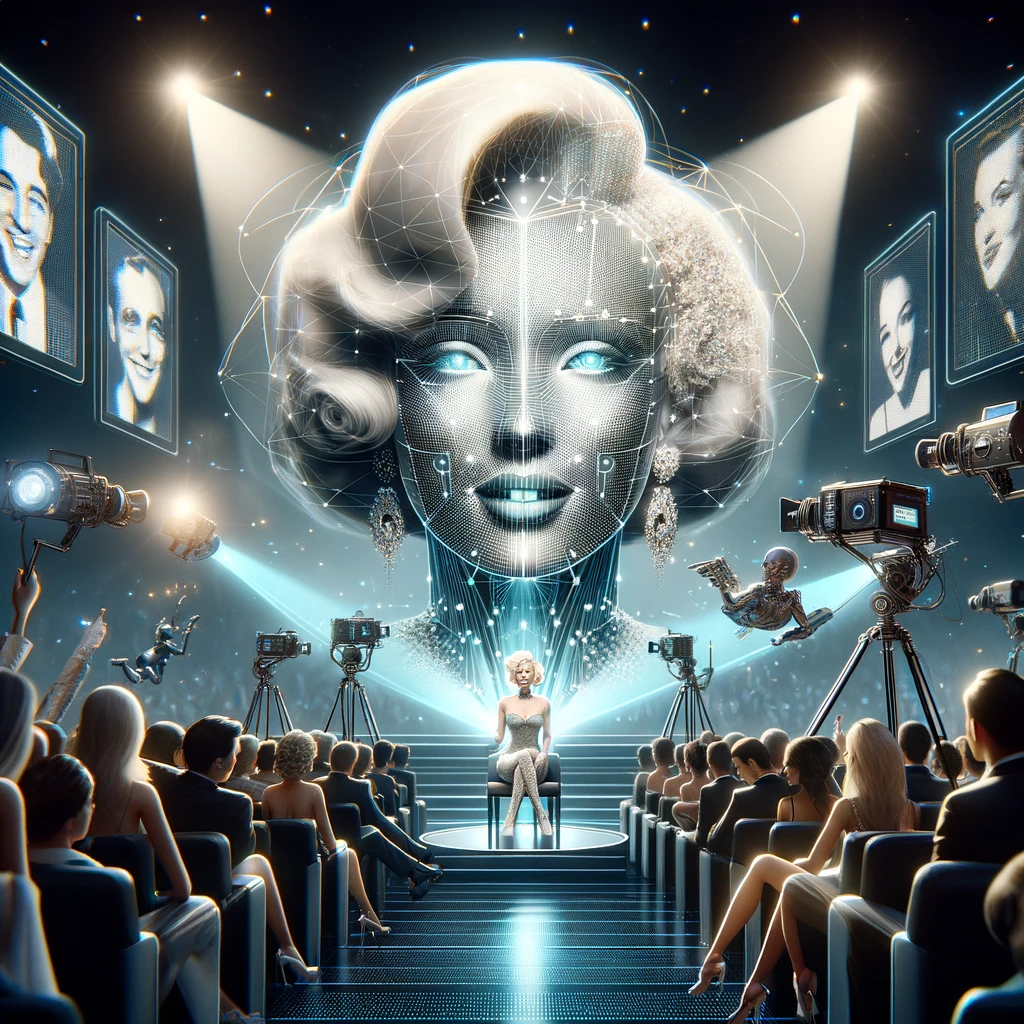
A conceptual depiction of Marilyn Monroe's digital revival, blending the glamour of the past with the innovation of the future.

A conceptual depiction of Marilyn Monroe's digital revival, blending the glamour of the past with the innovation of the future.
In a world where the boundaries between reality and digital creation blur, the resurrection of Marilyn Monroe, over six decades after her passing, marks a seminal moment in the evolution of artificial intelligence. At the South by Southwest tech conference in Austin, Texas, a groundbreaking project brought to life a very realistic digital avatar of Monroe, dubbed “Digital Marilyn” sparking both admiration and ethical debates. Developed by Soul Machines in partnership with Authentic Brands Group, this AI-driven digital personification promises to redefine our interaction with iconic figures of the past.
Harnessing cutting-edge AI technology, Soul Machines has crafted an avatar that not only mirrors Monroe’s iconic appearance but also emulates her distinctive voice and mannerisms. The digital doppelganger, sporting a modest black turtleneck and the classic blonde pixie cut, is programmed to express emotions, and engage in conversation, reflecting the actress’s known personality traits and preferences. For more insights into this fascinating development, visit the original article on Reuters.
The collaboration between AI specialist Soul Machines and Authentic Brands Group, which holds the likeness rights to Monroe among other deceased celebrities, raises intriguing possibilities for the future of brand endorsements and digital legacy management. The venture aims not just to entertain but to explore the potential of iconic figures serving as brand ambassadors from beyond the grave.
The advent of Digital Marilyn ushers in a host of ethical considerations surrounding digital resurrection. As technology blurs the line between the living and the recreated, questions about consent, identity, and the legacy of deceased celebrities come to the fore. The ability of AI to replicate human nuances has profound implications for copyright, identity rights, and our very conception of authenticity and immortality.
As we stand on the brink of this new era, the possibilities are as vast as they are complex. The potential to bring historical figures into the present could revolutionize education, entertainment, and brand interaction. However, navigating this future requires careful consideration of the ethical, legal, and social implications of digital personhood and resurrection.
The debut of Digital Marilyn at a prominent tech event is more than a technological marvel; it’s a conversation starter about the future of AI, celebrity culture, and the ethical boundaries of digital creation. As we ponder the possibilities, it’s clear that the dialogue around digital personification is only just beginning. The implications for copyright law, moral rights, and personal legacy in the digital age are vast and varied, promising a future where the icons of the past could walk among us once more, albeit in digital form.
Further Reading and Exploration For those intrigued by the intersection of AI and celebrity culture, exploring the nuances of AI regulation, the ethics of digital resurrection, and the potential for new forms of posthumous celebrity endorsements is essential. Previous articles on my blog, under AI Regulation and AI Ethics categories, delve deeper into these topics, offering insights into the future of AI governance and ethical concerns about AI in the digital age.
